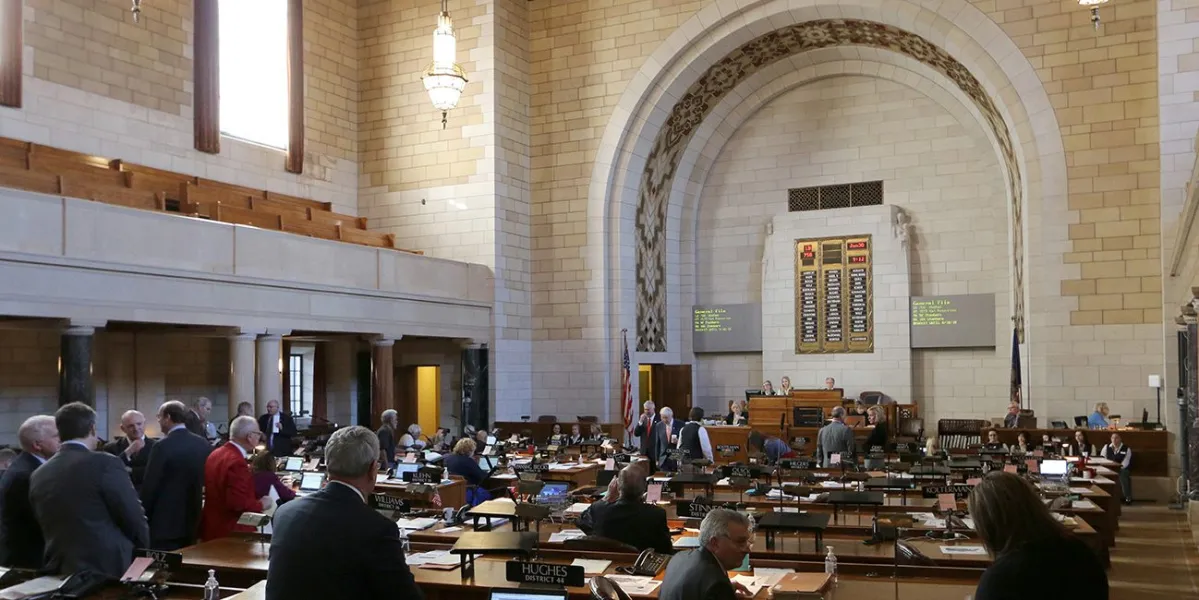Copyright The Intercept

States are passing a flurry of anti-China bills that critics warn could chill free speech, create an administrative albatross for ordinary citizens, and invite politically motivated civil penalties. Though framed as efforts to curb Chinese influence, civil liberties advocates contend that the bills bear the hallmarks of modern-day McCarthyism — propelled by newly created dark-money organizations. “There’s often a fair debate to be had over China’s influence,” said James Czerniawski, head of emerging technology policy at Consumer Choice Center. “But my bigger concern is that states are greenlighting a second Red Scare.” “My bigger concern is that states are greenlighting a second Red Scare.” Nebraska, Louisiana, Arkansas, and Texas have now passed sweeping state-level foreign influence registries. Nebraska’s bill, called the Foreign Adversary and Terrorist Agent Registration Act, creates a state registry for agents working on behalf of entities in “adversary” countries, a list which includes China, Cuba, Iran, North Korea, Russia, and Venezuela. A pair of nonprofits with opaque funding streams, State Shield and State Armor, are helping fuel the legislative frenzy. Both of the dark-money organizations are newly arrived players, founded in 2024 and 2023 respectively. The two organizations have been showing up to statehouses across the country testifying in favor of state-level foreign agent registries that go far beyond the Foreign Agents Registration Act, or FARA. The new law in Nebraska contains none of the exemptions seen in FARA, the federal law that regulates influence peddling, known for famously uneven enforcement. Instead, the state-level legislation has expansive requirements. Businesses, universities, and humanitarian organizations must register as foreign agents if they conduct “activities that involve advocacy on behalf of a foreign principal,” meaning an organization or company that is at least 20 percent owned by a foreign entity. “A Nebraska university that set up a public talk at the ‘request’ of a Cuban dissident could seemingly have to register,” said Nick Robinson, a senior legal adviser at the International Center for Non-for-Profit Law. “So could a Nebraskan farmer who was just selling their crop to a company with 25 percent Chinese ownership as the Nebraska law covers purely economic transactions.” Many employees of large household companies would be required to register under the rule. U.S.-based workers of firms owned or partially owned by Chinese companies — for instance, Smithfield, General Electric, Epic Games, Motorola, Lenovo, and Waldorf Astoria — will likely have to register. Facing a $50,000 penalty and, for noncitizens, deportation, the law could have a chilling effect for citizens across states that have passed such laws. Democratic Nebraska state Sen. John Cavanaugh posed the question bluntly during a floor debate on the bill: “What’s the appropriate amount of intrusion into our citizens’ privacy to crack down on China?” Dark Money Just who is funding State Shield and State Armor, both based in Austin, Texas, is unknown. Michael Lucci, the founder of State Armor, has said that State Armor’s donors do not have financial interests in the work, though does not disclose their names. A Wall Street Journal profile of Lucci in May noted that several wealthy China critics close to him could stand to gain from hawkish state policies. (State Armor and State Shield did not respond to the Intercept’s questions about their funding.) The State Armor founder used to be a fellow at a think tank funded by Palantir co-founder Joe Lonsdale. Former Trump national security adviser Robert O’Brien, who now leads a defense contractor-oriented consultancy firm called American Global Strategies, sits on State Armor’s board. “Resilience is the key topic for states to address — being ready for potential conflict, being ready to counter political warfare — this is a part of resilience,” Lucci said of the Nebraska law in a press release from the governor’s office touting the bill’s passage. Lucci and Tom Rawlings, the policy director of State Shield, both point to New York as evidence that states need to combat China’s strategy of influencing states. Former New York state official Linda Sun allegedly worked for China in exchange for millions of dollars in gifts, including a Hawaii apartment and a 2024 Ferrari. Sun was indicted by the Department of Justice on visa fraud, money laundering, and charges of acting as an unregistered foreign agent. In addition to representatives from State Armor and State Shield, several other organizations parachuted into Nebraska to testify in favor of the bill. A research fellow at the Washington-based Global Taiwan Institute, which has received several “generous” grants from a Taiwanese government-affiliated organization, also testified in favor of the anti-China bill. Alexander Gray, CEO of American Global Strategies, also testified. Gray sits on the board of State Armor alongside O’Brien. Towards the end of the public hearing, Republican state Sen. Rita Sanders had become accustomed to the routine, at one point asking a witness, “Are you local or are you from Washington, D.C.?” More to Come Anti-China efforts are popular for state and federal lawmakers alike who are eager to prove their flag-waving zeal. Congress has launched probes into universities that collaborate with Chinese researchers or travel to China to attend a conference. “China is the magic word these days,” explained Czerniawski. In late September, the Trump administration also signed a national security directive called NSPM-7 which, among other things, gives the FBI authorization to investigate Americans with close ties to foreign governments and citizens that support domestic terrorism. Antifa was designated a terrorist organization days earlier, suggesting that the directive will be used to investigate left-leaning groups. “China is the magic word these days.” “ This would be like if George W. Bush had said Code Pink was Al Qaeda, or people protesting the wars in Iraq and Afghanistan were associated with the Islamic State,” said Miles Taylor, a former chief of staff for the Department of Homeland Security, of NSPM-7. Last week, Lucci singled out the left-wing anti-war group Code Pink on X, saying “Code Pink = Code Red,” adding a Chinese flag emoji. In July, the American Legislative Exchange Council, a nonprofit that former House Speaker Newt Gingrich has dubbed “the most effective organization” at spreading conservatism to state lawmakers, published a draft model policy bill that mirrored the Nebraska bill. ALEC will likely consider whether to approve the legislation or not during its winter conference in December. If they do, many red states may follow suit. Who Registers? ALEC’s model legislation would require every nonprofit and business to attest that they are cognizant of and in compliance with the bill. “A lot of everyday businesses will be stumped when they have to attest to this question: Are you in compliance with the Foreign Adversary and Terrorist Agent Registration Act?” said Spike Eickholt, a government liaison at the ACLU of Nebraska. “And they might say ‘Look, I don’t know, I just make donuts.’” Nebraska’s newly created “FATARA unit,” set up to administer and enforce their new law, doesn’t provide many concrete answers as to how Nebraskans can remain Foreign Adversary and Terrorist Agent Registration Act-compliant. The state’s FATARA unit has been vague in answering questions about who must register. When probed by The Intercept by phone, an official at the FATARA unit said, “There’s been a lot of questions about this, you’re not the first.” A three-sentence statement posted by the FATARA unit online said, in part, “Educational, charitable, entertainment, and public relation activities that promote or intend to influence political or policy views are subject to registration.” In the absence of clarity, state governments wield discretion as to how to enforce these laws. “There is a real concern that since these laws are so broad and vague that they will be enforced in a politicized manner, only targeting those with which the government disagrees,” said Robinson, of the International Center for Non-for-Profit Law. With a $50,000 penalty in both ALEC’s proposed model legislation and the Nebraska bill, the stakes are enough to bankrupt a small business or nonprofit. Eickholt said, “This bill is going to have a chilling effect on the basic rights of citizens.”



